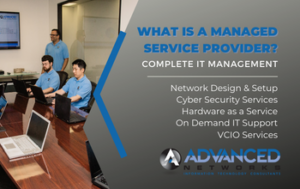
One of the biggest benefits of working with IT support providers in LA is you get sensible solutions on cloud scalability. So whether your business expands or contracts over time, your IT team will be able to help you scale up or down with your cloud services. Here’s a look at some of the ways an experienced IT team can point a business toward easy handling of growing or shrinking cloud resources.
Understand Different Types of Scaling
The cloud offers three main different methods to achieve scalability: vertical scaling, horizontal scaling, and diagonal scaling. Vertical scaling involves expanding or contracting your server space. Horizontal scaling extends or removes part of the infrastructure. Diagonal scaling is a hybrid of vertical and horizontal scaling.
Manage Resources with Auto Scaling
After you’ve scaled your business, you can use auto-scaling as a way to manage your resources. Your IT support team in LA will help you define specific policies or milestones that trigger automated actions that scale up or down. It’s a useful practice to schedule automated solutions for periods of increased traffic and company activity.
Concept of Load Balancing
Load balancing is a concept involving allocating a workload to a list of eligible computers. Platforms that deliver this concept are designed to assign a certain workload on appropriate machines at a scheduled time. Stratoscale’s unique load balancer monitors both consumption and the potential demand of resources.
The platform is divided into two parts: multiple global load balancers that place workloads within system nodes and a node-local load balancer that divides resources among workloads within a node. The global load balancer serves the role of trying to balance loads on all nodes.
How Containers Improve Scalability
A container is a package that carries programming code. Containers share a kernel and can deploy multiple identical application instances. The use of containers has facilitated the development of a more scalable and portable infrastructure. Containers aren’t dependent on other resources and allow for more flexibility than virtual machines due to the capability of sharing software including operating systems.
Test Your Cloud Environment
One of the keys to growth is routinely testing your cloud scalability to make sure your system handles the load smoothly. Regular testing can help avoid bottlenecks down the road.
Conclusion
Building your cloud infrastructure can be done productively with the help of IT support professionals in LA. Not only can a seasoned IT team help resolve your technical issues, they can also help you manage your cloud services so that your operation experiences maximum business continuity. Contact us at Advanced Networks to learn more about how our services can help improve your business technology.




